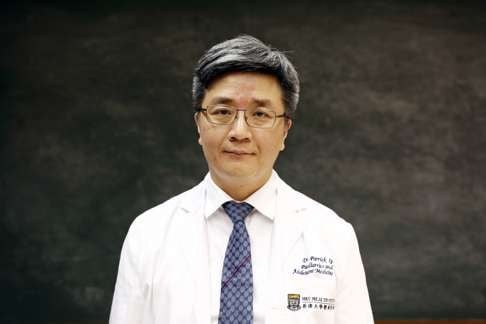
Spike in child abuse cases in Hong Kong coincides with exam time, research shows
Spotlight on stay-at-home parents who lack a support network as paediatricians link school exam time with an increase in child abuse incidents in Hong Kong
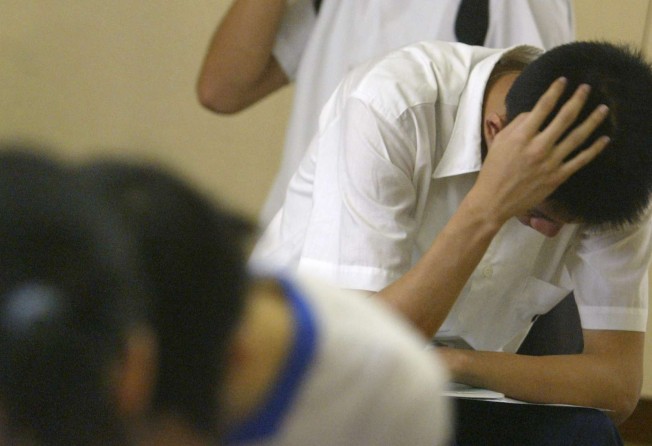
The strain Hong Kong’s high-pressure education system places on families has been highlighted by new research showing a spike in child abuse cases coinciding with the school exam season.
Patrick Ip Pak-keung, a paediatrician at Queen Mary Hospital, says the researchers have identified a decade-long uptick in hospital visits resulting from child abuse around the time children are sitting for exams. In the cases examined, doctors have found reports of bruises on hands, feet and places that are hard to injure, such as the inner thighs and stomach. More serious cases involve children with damaged joints or bone fractures.
“Paediatricians in various hospitals in Hong Kong have [long] suspected that there’s a seasonal pattern to these cases of children coming to the hospital … but this was just something we observed,” Ip says. “[Paediatricians and social workers at the Social Welfare Department] all have the impression that child abuse is getting worse in Hong Kong, and suspect it’s related to the education system or the unnecessary stress parents have to face from schools.”

Ip, a clinical associate professor in the University of Hong Kong’s department of paediatrics and adolescent medicine, investigated the line of enquiry with peers at HKU, Chinese University and Shanghai Jiao Tong University School of Medicine. Their results, published in the journal Archives of Disease in Childhood in July, show the number of child abuse cases leading to hospital visits stood at 73.4 per 100,000 children in 2001, and the figure had more than doubled by 2010.
For children aged six to 18, non-sexual abuse cases peaked consistently in May and October, coinciding with the two school exam periods, and dipped in July and August. Adding more weight to their findings, no seasonal pattern of abuse was found among kindergarten children, who do not take exams.
“This isn’t tracked by the education community, and no one had suspected that the education system in Hong Kong might have something to do with child abuse,” Ip says.
The researchers are confident of their findings, Ip says. Their data was mined from the Hospital Authority paediatrics database. All files were submitted by doctors who had classified cases as child abuse after consulting nurses, social workers, teachers and, in some cases, parents.
Asked to comment on the research, an Education Bureau spokesman said in an emailed response: “There is no conclusive evidence to support this speculation. After all, there are many factors [including those beyond the school system] behind the seasonal pattern of child maltreatment hospitalisation.”
A 2005 survey by HKU indicated that reported cases of child abuse are the tip of the iceberg, and for every case that comes to light, as many as 100 others go unreported.
Hong Kong’s education system, with its exam culture and focus on grades, is placing undue pressure on families – children and their parents – and the society at large, Ip says.
“Parents always say their child’s health comes first, but we see many cases where parents make their children go to school when they’re ill, because they’re afraid they won’t be able to catch up after missing a day or two.” As for parents, he says, it’s common for them to lose sleep during exam season because they worry their children will not get good grades.
Jessica Ho Oi-chiu, director of Against Child Abuse, says the group receives an increasing number of calls to its hotline from parents and children during exam season.
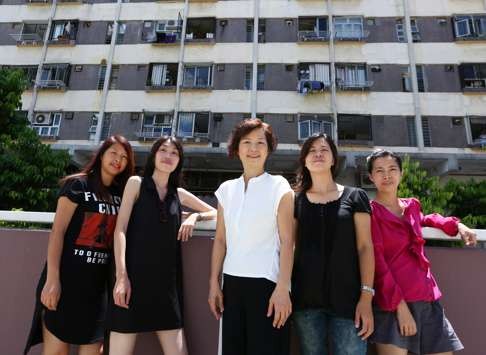
Eva Poon Wai-yee, a volunteer for the group and a mother in her 30s, says her daughter started primary school a year ago, and both become distressed when her daughter has to take an exam.
“We can revise everything, but she’ll have forgotten it all the next day because of stress,” Poon says. “I can get angry because I spend a lot of time going through the material with her. She’ll get ill for about a week after exams.”
Gloria Tam Sze-hang, another volunteer in her 30s, has a son in Primary Five and says she’s experienced the rush of blood to the head parents can get around exam time. Tam was disappointed the first time her son brought home his results. “I got really angry and threw all the papers on the floor, [shouting] ‘How could you? I helped you go over everything! How could you get this word wrong?’”
Tam stormed off to her room, she recalls, slammed the door and came out only after calming down, afraid she might strike her son. She now realises grades are not the only thing that matter in school; it’s more important to simply encourage children to do their best.
It’s difficult to talk to other parents who are sad or angry about their children’s exam results, she says.
“You have to talk to them like you’re defusing a bomb … try to figure out what the issue is.”
Chan Kit-man, a mother of two, says even her children’s teachers feel compelled to remind parents that grades are not the be all and end all.
“They tell us that an exam is a mechanistic exercise: if you want them to score higher grades you can give them more exercises, but it doesn’t really show whether or not they’ve understood the material,” Chan says.
The volunteers unanimously stress that it’s important to have other parents to talk to, even if it’s just to let off steam and learn how others deal with the pressures.
That’s one aim of an Against Child Abuse home visit programme, where volunteer parents visit new mothers to chat and trade tips. Polytechnic University researchers studied the programme and concluded, in a 2005 article, that it helped reduce feelings of distress and loneliness in new mothers, and the potential for child abuse.
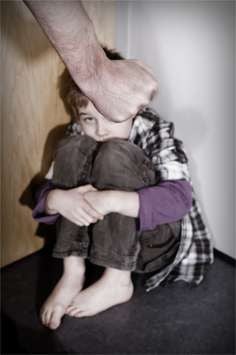
Joseph Wong, a registered social worker and service manager at Against Child Abuse in Tuen Mun, says the biggest concern is stay-at-home parents who lack a support network. He says he has seen cases where parents discipline children by “not letting them eat, throwing them out of the house, stripping them naked [and] force-feeding them chilli paste”.
Sylvia Kwok Lai Yuk-ching, convenor of the Positive Education Laboratory and associate professor of applied social sciences at the City University, acknowledges that life in Hong Kong is generally competitive and the problem of child abuse does not solely revolve around pressures from the education system.
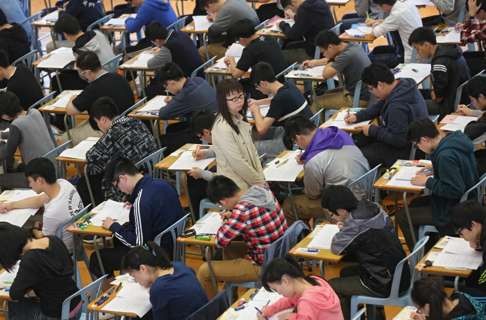
“Even if we didn’t have exams, parents would still pressure their children with something else,” Kwok says. “This will happen as long as parents have this mindset of winning on the starting line and having children who are better than everyone else’s. I think this is unavoidable.”
Kwok says her research on child abuse in Hong Kong shows it can also be triggered by a history of child abuse in the family, impulsiveness or ignorance on the part of parents.
She recalls a case she encountered working for the Catholic charity Caritas. The elderly husband would slap his daughter whenever he got angry, while his younger wife had been totally unprepared for motherhood. After counselling with a social worker, the father stopped beating his daughter. He admitted he “didn’t know how to parent” and “was just doing what people in previous generations did”.
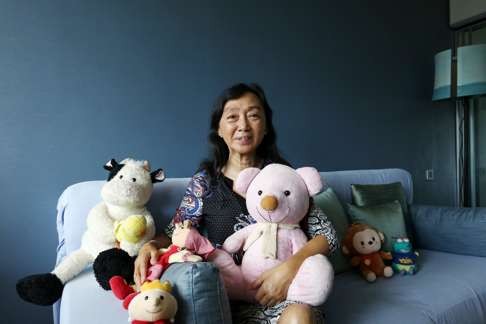
Kwok now holds seminars and training sessions for parents and teachers to teach them how to think positively and handle their emotions. One goal is to get parents to see their children “as individuals and not tools or something they can control and manipulate”.
She sometimes gets parents to beat a chair with a cane, to see for themselves the scratches and lesions they could cause when they become enraged.
Priscilla Lui Tsang Sun-kai, a former social worker and now vice-chairperson of the Hong Kong Committee on Children’s Rights, says the government has tried to encourage parents and schools to look beyond test grades.
“Exams may not be a bad thing, but the way they are approaching them is suffocating children and suffocating parents,” Lui says.
In October 2015, the Education Bureau issued a circular to schools encouraging them to find better ways of assessing student performance, the spokesman noted in the email. It called on schools not to be overreliant on tests and drilling.
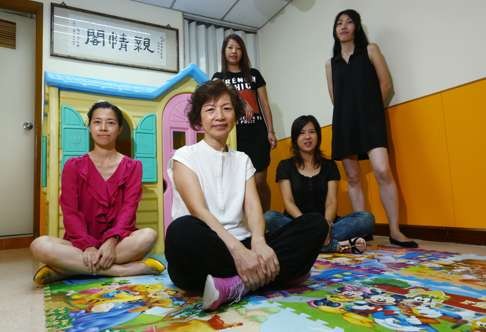
Lui says the government should outlaw corporal punishment at home, as it did in schools in 1991.
A mother herself, she acknowledges it can be hard for parents to see the error of their ways when it concerns something as personal as disciplining their children.
“That makes government policy, legislation, education and services more important, because you are fighting against a very strong tide of cultural practices, traditional beliefs, and so on,” she says. Right now, she adds, in Hong Kong “children… have no voice”.